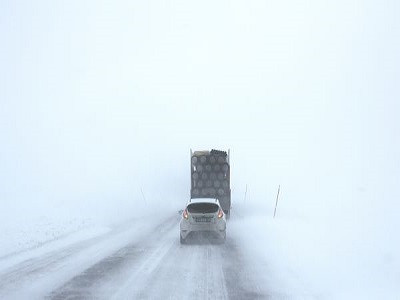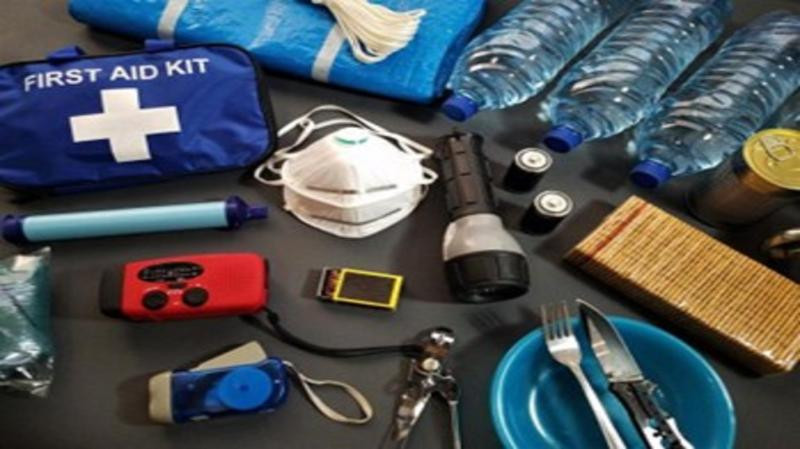Winter storms in Erie County can bring significant challenges, from heavy snowfall and icy conditions to dangerously low temperatures. These severe weather events often lead to travel bans, implemented to ensure public safety and minimize risks associated with hazardous travel. Understanding travel bans and knowing how to prepare for winter storms is crucial for residents and anyone planning to travel through Erie County during the winter months.
When winter storms strike Erie County, the primary concerns are often related to transportation safety and the health risks associated with extreme cold. Winter storms can create a multitude of hazards, including increased risks of car accidents, hypothermia, frostbite, carbon monoxide poisoning, and even heart attacks due to overexertion. Conditions can rapidly deteriorate, with extreme cold, freezing rain, heavy snow, ice, and strong winds making travel incredibly dangerous.
During these critical times, Erie County authorities may issue travel bans. These bans are not arbitrary; they are put in place to protect the community. If you find yourself under a winter storm warning in Erie County, it’s imperative to understand and adhere to any travel bans and take immediate steps to ensure your safety and well-being.
Understanding Travel Bans in Erie County
Travel bans in Erie County are typically implemented during the most severe winter weather events. These restrictions mean that non-essential travel is prohibited in designated areas. The goal is to keep roads clear for emergency vehicles and essential personnel, reducing the likelihood of accidents and ensuring that emergency services can reach those in need.
Ignoring a travel ban in Erie County can have serious consequences. Firstly, you are putting yourself and potentially others at significant risk. Emergency services may be stretched thin, and if you become stranded or involved in an accident, help might be delayed. Secondly, violating travel bans can sometimes result in fines and penalties, as these are legally enforced measures designed for public safety.
To stay informed about travel bans in Erie County, it’s essential to monitor local news channels, weather alerts, and official Erie County government websites and social media. Sign up for emergency alert systems like the Ready Erie App and BUFFALERT to receive timely notifications about travel advisories and bans directly to your devices.
Preparing for Winter Storms in Erie County: Home and Travel
Being prepared for winter storms in Erie County goes beyond understanding travel bans; it requires proactive measures to safeguard your home, vehicle, and health.
Home Preparedness
Your home should be a safe haven during a winter storm. Here’s how to prepare your home in Erie County:
- Find Shelter Immediately: If a winter storm warning is issued, seek shelter right away. Know the locations of warming shelters in Erie County by calling 2-1-1 or checking the Ready Erie App.
- Stay Indoors: Remain indoors throughout the storm and avoid unnecessary travel, especially during a travel ban.
- Maintain Heating: Ensure your heating system is functioning correctly. Clear exterior exhaust and furnace vents to prevent carbon monoxide buildup.
- Warm Clothing: Have layers of warm clothing readily available.
- Bring Pets Inside: Pets are also vulnerable to cold weather; bring them indoors.
- Emergency Information: Keep a battery-powered radio or NOAA weather radio to listen for emergency information and alerts, especially if power outages occur.
- Locate Utilities: Know the location of electrical boxes and water shut-off valves in your home.
- Prepare for Power Outages: Have flashlights, extra batteries, and non-perishable food and water supplies.
- Generator Safety: If using a generator, operate it outside only and away from windows and doors to prevent carbon monoxide poisoning.
Vehicle Preparedness: Building a Car Emergency Kit
Even with travel bans in place, there might be unavoidable situations where you need to use your car before or after a storm. Having a well-stocked car emergency kit is vital:
- Emergency Car Kit: Build an emergency kit for your car that includes items like jumper cables, a flashlight, blankets, a first-aid kit, non-perishable food, water, and a phone charger. Resources like Ready.gov provide detailed lists of essential car kit items.
- Maintain Your Vehicle: Keep your gas tank full during winter. Ensure your tires have good tread for better traction on snow and ice. Know how to use jumper cables in case of a dead battery.
- Avoid Flooded Areas: Never drive through flooded areas, as floodwaters can be deeper and more dangerous than they appear.
- Power Line Safety: If a power line falls on your car, stay inside the vehicle until trained professionals remove the wire.
 Emergency car kit
Emergency car kit
Home Emergency Kits: Essential Supplies
Just as important as a car kit is a comprehensive home emergency kit. This kit should sustain you and your family during extended power outages or periods of being confined to your home:
- Home Emergency Kit: Prepare an emergency kit for your home with supplies to last for at least 72 hours. This should include water, non-perishable food, a first-aid kit, medications, warm clothing, blankets, a portable radio, flashlights, and extra batteries. Ready.gov offers guidance on building a home emergency kit.
- Food Pantry: Build your food pantry with non-perishable items. Consider downloading the Emergency Eats Cookbook for recipe ideas using pantry staples.
- Medications and First Aid: Ensure you have an adequate supply of prescription medications and a well-stocked first-aid kit.
- Communication: Exchange contact information with neighbors to check on each other, especially during and after a storm.
 Emergency home kit
Emergency home kit
Staying Safe and Healthy During Erie County Winter Storms
Beyond physical preparedness, understanding the health risks associated with winter storms is crucial for staying safe in Erie County.
Staying Warm and Finding Shelter
- Warming Shelters: Erie County operates warming shelters during extreme cold events. If you lose heat or need a safe place to go, locate the nearest warming shelter by calling 2-1-1 or using the Ready Erie App.
- Check on Neighbors: Especially vulnerable neighbors, such as seniors or those with disabilities, may need assistance during a winter storm. Check on them to ensure they are safe and warm.
Avoiding Cold-Related Health Risks
- Hypothermia and Frostbite: Prolonged exposure to cold can lead to hypothermia (dangerously low body temperature) and frostbite (tissue damage due to freezing). Recognize the signs of hypothermia and frostbite and seek medical attention immediately if symptoms appear. The CDC provides detailed information on these conditions.
- Carbon Monoxide Poisoning: Carbon monoxide (CO) is a silent killer. Ensure you have working carbon monoxide detectors in your home, especially if using fuel-burning heating sources. Never use generators, grills, or propane stoves indoors.
Alt text: Image warning about Carbon Monoxide poisoning, a significant risk during winter storms in Erie County, and listing common symptoms.
Staying Informed: Emergency Alerts and Resources
- Ready Erie App: Download the free Ready Erie App for real-time notifications, emergency shelter locations, evacuation maps, and preparedness planning tools specific to Erie County.
- BUFFALERT System: Sign up for the City of Buffalo BUFFALERT System to receive targeted emergency alerts and severe weather warnings if you are in or near Buffalo, Erie County.
- Local Media: Monitor commercial radio and television stations for the latest winter weather updates and emergency information broadcasts.
Conclusion: Prioritizing Safety During Erie County Travel Bans
Winter storms and associated travel bans in Erie County are serious events that require careful preparation and adherence to safety guidelines. By understanding the risks, preparing your home and vehicle, and staying informed through official channels, you can significantly enhance your safety and well-being during these challenging winter conditions. Always prioritize safety, heed travel bans, and ensure you and your loved ones are ready for whatever winter may bring to Erie County.
